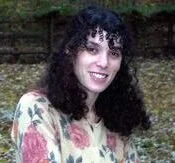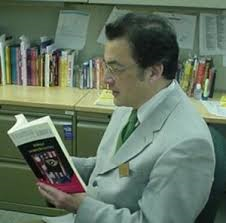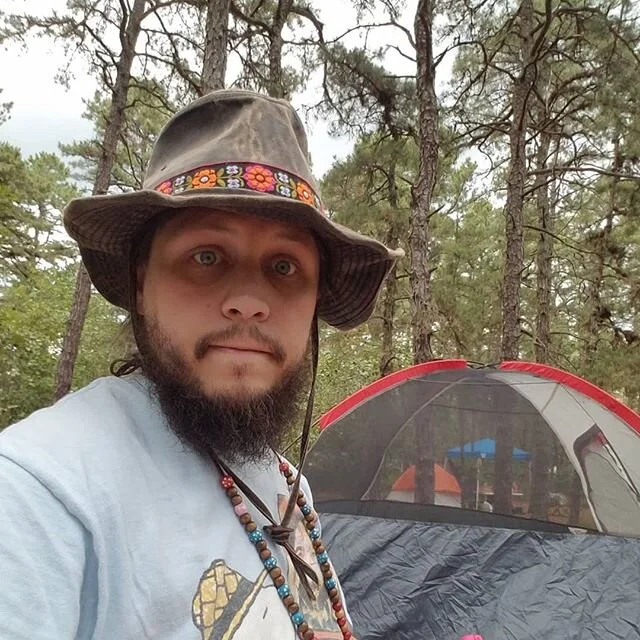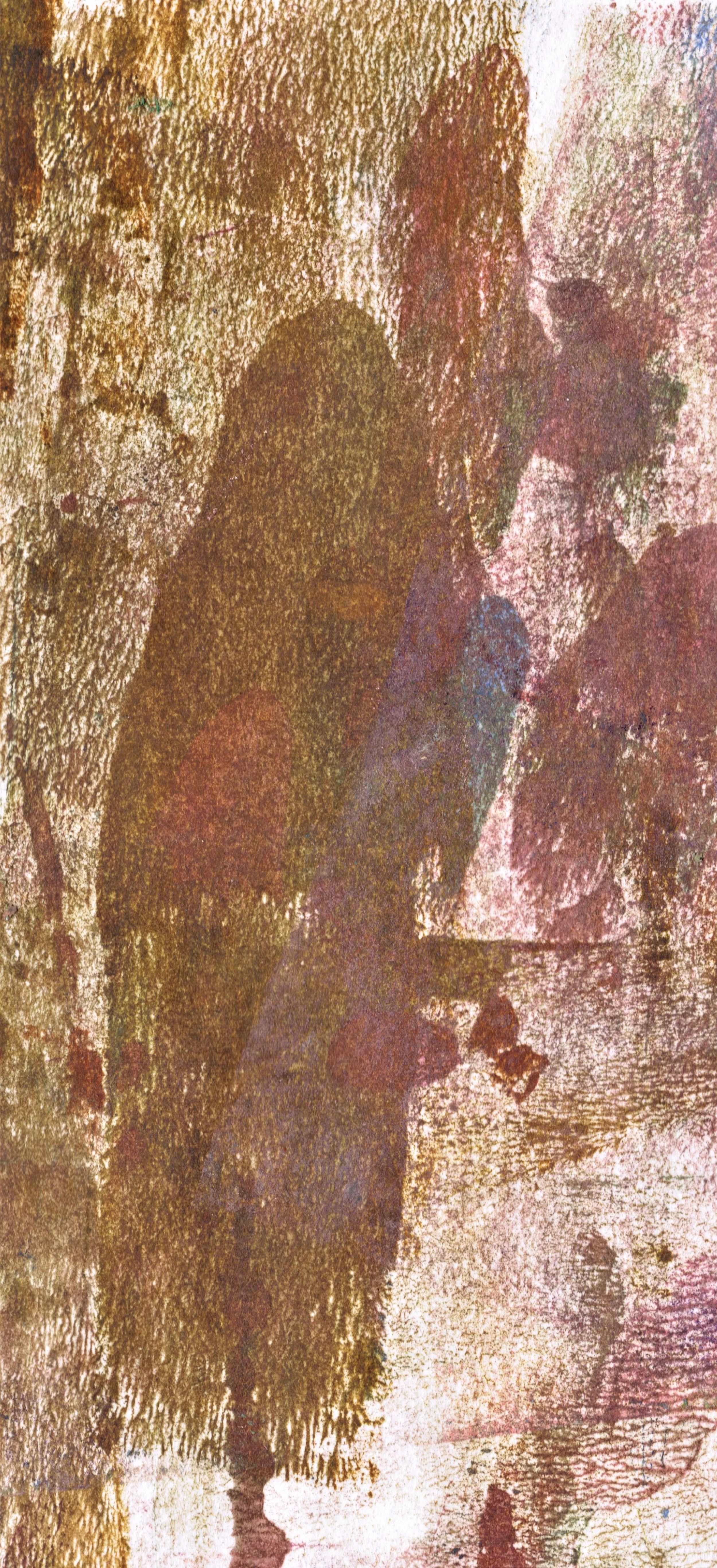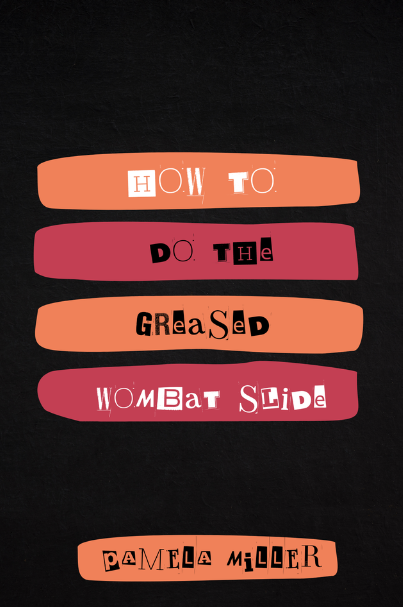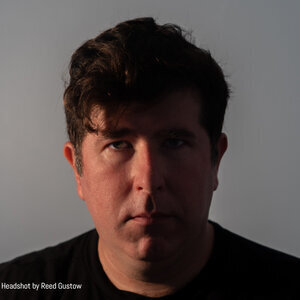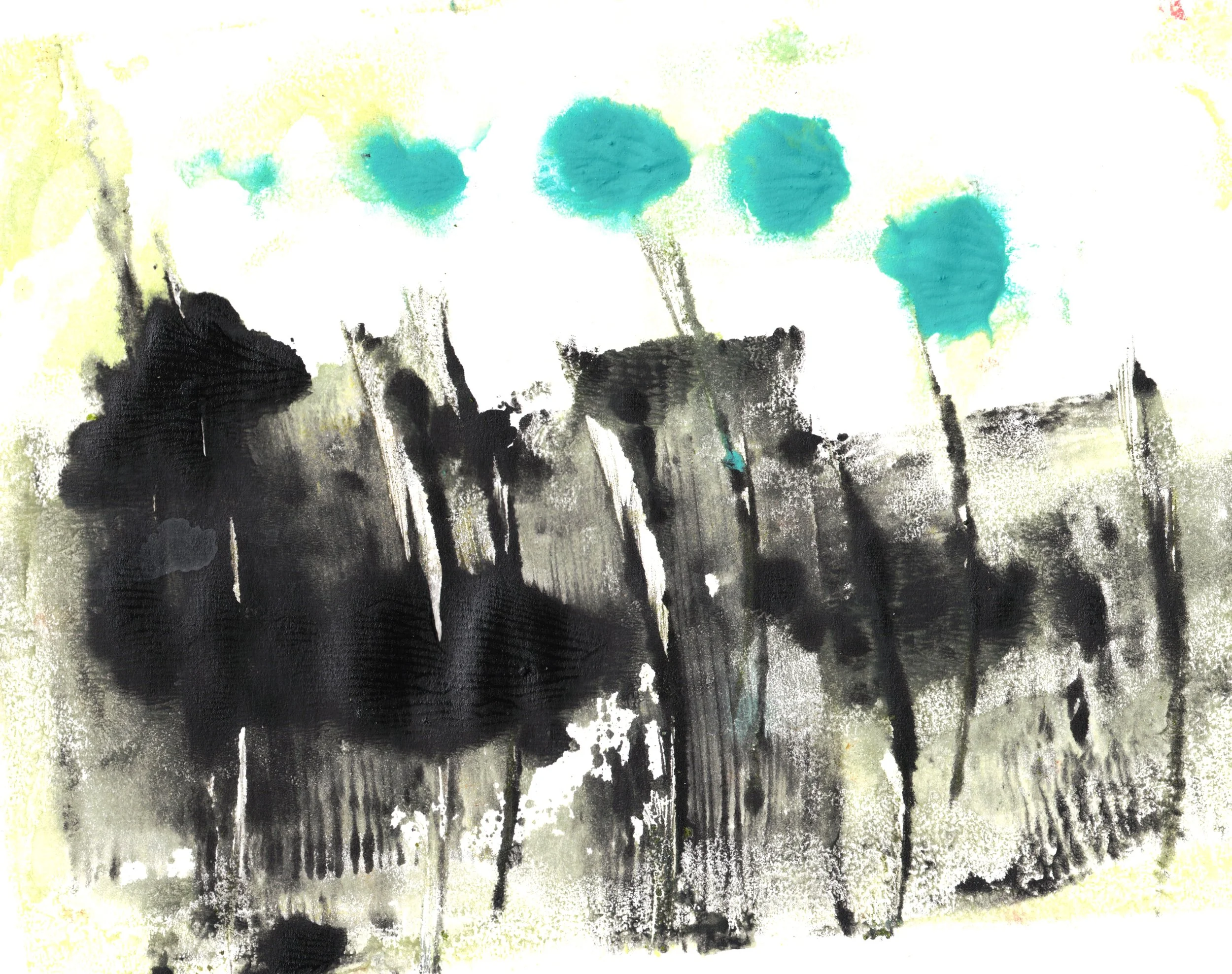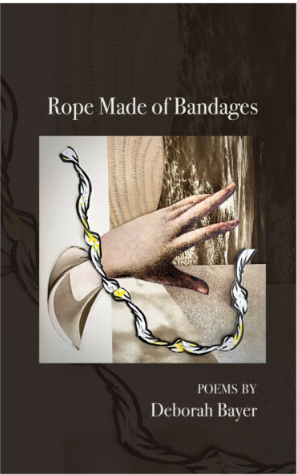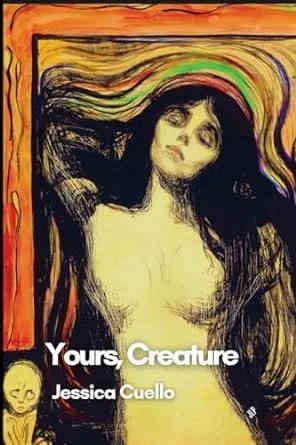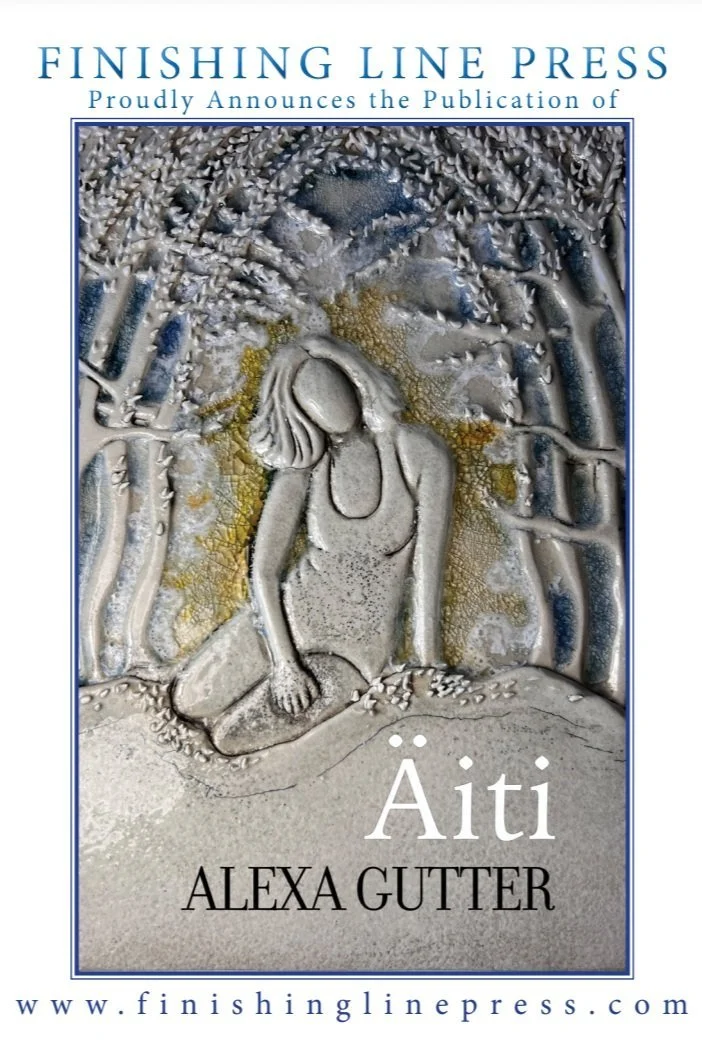Ekphrasis: Poems and Art
Welcome to a new Mad Poets blog, to be offered quarterly.
It’s a pleasure to write about the relationship between poetry and other art forms, to examine ways that a various creative arts relate to each other.
The term ekphrasis can be defined narrowly as writing that describes a work of art in another medium-- paintings, music, photography sculpture and the like. It can also refer more broadly to the alchemy that happens when one medium tries to define and relate to another. This could refer to poems inspired by the visual arts or music -- and also the reverse! To my mind, ekphrasis can also encompass hybrid works, like artists’ books, author/illustrator collaborations and graphic poems.
Many scholars have written about ekphrasis and there are great resources online. Though not scholar of the topic, I have had a practice of writing poetry and painting for many years. Both are essential to my creative life. These art forms interact, challenge each other and open up many questions and tensions.
My aim in this blog is to feature the work of various poets and artists, to let you know of interesting viewing opportunities and to provide some angles that might prompt your own writing.
Songs of Winter; Songs of Summer: John Sevcik and Lynne Campbell
Last spring Cerulean Arts Gallery presented Songs of Winter; Songs of Summer, an exquisite series of paintings by Lynne Campbell and John Sevcik. These landscapes offer a sense of intimacy and stillness. Narratives vibrate beneath. This beautiful exhibition was particularly poignant since John died near the time of its opening.
A brilliant writer, painter and teacher, John was a beloved and important presence in the Philadelphia art community. To learn more about his achievements: https://fleisher.org/celebrating-the-life-of-john-sevcik/.
Lynne and John met as students at The Pennsylvania Academy of the Fine Arts (PAFA). Mutual devotion nurtured this talented couple through their marriage and creative partnership. Both painter and writers, Lynne composed prose poems and John focused on plays, essays and free verse. Lynne has graciously shared memories with me of being in John’s historic barn studio in Valley Forge, reading to each other from Dickinson, Wordsworth and Frost.
Lynne Campbell, In the Meadow, acrylic on paper
Lynne said, “For John, poetry and painting was about meaning. He was devoted to art and felt it one of the most potent forces we had as human beings. It held us to the humane, to our intrinsic value as human beings. This was something we both felt — it was an important part of our great bond.”
Lynne’s work is exhibited in many public and private collections, including the Woodmere Art Museum. She has been awarded several prizes and travel scholarships, studying archaic and classical sculpture in Greece. Author of four books of poetry, Lynne is an artist with deep ties to myth and to the natural world.
John has exhibited widely in the U.S. and in South Korea. He was a published poet, and his plays were produced by The Philadelphia Theatre Company, and other companies. A popular lecturer, he taught at The Fleisher Art Memorial, the Delaware Art Museum, the Delaware College of Art and Design, the Cheltenham Center for the Arts, and Immaculata University.
Delving into John’s writings, I found myself highlighting numerous aphorisms: If time stops in a picture, is that moment infinite?... Why does it stun us to see certain paintings? Why have we woken up? Why were we sleeping before?
About Henry Ossawa Tanner’s works in a 2012 PAFA exhibition, John wrote, “Paintings like these make us feel the truth for which sermons are written. There is no difference between a miracle and a painting, and when we were children and felt these things were true about paintings, we knew a truth before we were ever taught why it is true.”
John Sevcik, I-76 and Evening Star, oil on canvas
In his introduction to John and Lynne’s recent Cerulean Arts show, he shared:
“Both artists experience loneliness in different ways, and that is the song of the seasons, if anything is. This is not a personal loneliness, for they are happily married. They instead share a feeling for nature that puts their feelings in a mutual state of mystery, reverie, and wonder. Though together, they are also on separate itineraries. Work varies from plein air to work from memory, imagination and dream.”
Lynne Campbell, Almost Night, acrylic on paper
How To Become
How to become part of the tracking grey sky? By loving it? Cars below have begun to put on their lights. The sky moves apace, indifferent. It is busy ferrying clouds. There are dark trees. And no birds.
Apparently, the mere anticipation of music causes us to produce dopamine. Imagine what the anticipation of a loved voice does.
The sky, dull all day, is losing what little luster it had left. What hopes might you map against it? What diagrams of private constellations, myths? These are sketched out in the heart, and projected easily tonight, for lack of stars.
- Lynne Campbell
John said, “I have become convinced that the place apart of the poet or painter…is to explore the world at the edge of knowledge and bring something back from there. It is this withdrawal that I have come to understand may constitute the most important part of our consciousness. And it is because artists have left us their meditations on the life they observed that audiences also experience a place apart.”
A painting is a painting
It’s not like you or me
Nobody gets older
No one ever sleeps.
It’s a stillness made of life
With meaning in its air
You feel it as you watch it,
Even as you stare:
At those forever praying
Or lying nude aware
Not of us but God
And the artist never there.
We travel time to then
And then to us appears;
Time becomes transparent
And what is far comes near.
Who gave their life to painting
That we can know life more?
The artist in his garret?
The model in her maze?
We think of things self-evident
When we observe those lives
Frozen in the minerals
Of pigments and the mind
But what of art’s intention?
Does it think or know the way?
The artist isn’t talking;
There’s nothing more to say.
Who made a painting matter
Then vanished long ago?
Who gave their life to painting
So we enjoy life more?
- John Sevick
John Sevcik, Field of Goldenrod (Orland, Maine), oil on canvas
I often ask: What are my own motivations to paint? What are my underlying subjects?
Certainly they are idiosyncratic. But it is helpful to read Lynne’s and John’s eloquent writings.
John shared, “This is to some extent the challenge of painting to me – how to excite the mind in a still reflection. In painting we consider the world as a long moment, with little movement…”
What an apt description of the work in their most recent exhibit at Cerulean Arts. It’s inspiring to consider the world as a long moment and how it does excite the mind. How lucky to encounter the wisdom and generosity of this talented couple.
This upcoming September, Cheltenham Center for the Arts will display a retrospective of John’s work:
Painter and Poet: The Work of John Sevcik
Opening reception: Saturday, September 14 from 2:00 to 4:00
Show dates: September 14 to October 13
https://www.cheltenhamarts.org/
For more about John and Lynne:
https://fleisher.org/celebrating-the-life-of-john-sevcik/
https://mandismag.wordpress.com/2013/02/17/featured-artist-john-sevcik-2/
https://www.blogger.com/profile/01771570848659431520
https://ceruleanarts.com/pages/songs-of-winter-songs-of-a-summer
http://Johnsevcikpainting.blogspot.com
http://Instagram.com/john_sevcik
http://Instagram.com/lynnecampbell8
http://viewfromthestudio.blogspot.com
http://poemsforanewcentury.blogspot.com
https://lynnecampbellpainting.blogspot.com/
http://tothestudio.com
Cathleen Cohen was the 2019 Poet Laureate of Montgomery County, PA. A painter and teacher, she founded the We the Poets program at ArtWell, an arts education non-profit in Philadelphia (www.theartwell.org). Her poems appear in journals such as Apiary, Baltimore Review, Cagibi, East Coast Ink, 6ix, North of Oxford, One Art, Passager, Philadelphia Stories, Rockvale Review and Rogue Agent. Camera Obscura (chapbook, Moonstone Press), appeared in 2017 and Etching the Ghost (Atmosphere Press), was published in 2021. She received the Interfaith Relations Award from the Montgomery County PA Human Rights Commission and the Public Service Award from National Association of Poetry Therapy. Her paintings are on view at Cerulean Arts Gallery. To learn more about her work, visit www.cathleencohenart.com.










